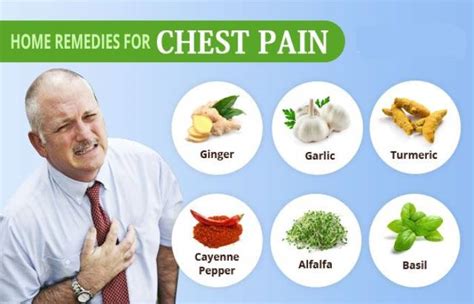How to Get Rid of Chest Pain: A Comprehensive Guide
Chest pain can be a frightening experience, prompting immediate concern. While many causes are benign, some require urgent medical attention. This guide explores potential causes, home remedies for mild discomfort, and when to seek professional help. Disclaimer: This information is for educational purposes only and does not replace professional medical advice. Always consult a doctor for any chest pain concerns.
Understanding Chest Pain: Potential Causes
Chest pain's location, intensity, and accompanying symptoms help determine its cause. Possible origins include:
1. Musculoskeletal Issues:
- Muscle Strain: Overexertion or poor posture can cause chest muscle strain, leading to localized pain. This often feels achy and improves with rest.
- Costochondritis: Inflammation of the cartilage connecting ribs to the breastbone. Pain is usually sharp and localized to the chest wall.
- Rib Fracture: A broken rib, often caused by trauma, results in sharp, localized pain worsened by breathing.
2. Cardiovascular Problems:
- Angina: Chest pain or discomfort due to reduced blood flow to the heart. Often feels like pressure, squeezing, or tightness, sometimes radiating to the arm, jaw, or back. This requires immediate medical attention.
- Heart Attack (Myocardial Infarction): A serious condition where blood flow to the heart is completely blocked. Symptoms can include crushing chest pain, shortness of breath, sweating, and nausea. Seek immediate emergency medical help.
3. Respiratory Issues:
- Pneumonia: Lung infection causing chest pain, cough, fever, and shortness of breath.
- Pleurisy: Inflammation of the lining of the lungs, causing sharp chest pain worsened by breathing.
- Asthma: Bronchospasm leading to chest tightness, wheezing, and shortness of breath.
4. Gastrointestinal Problems:
- Heartburn (Gastroesophageal Reflux Disease - GERD): Stomach acid refluxing into the esophagus, causing burning chest pain.
- Esophageal Spasms: Sudden, intense contractions of the esophagus, resulting in sharp chest pain.
Home Remedies for Mild Chest Pain: When to Use Caution
For mild chest pain possibly stemming from muscle strain or minor indigestion, these remedies might offer temporary relief. However, never use these methods if you suspect a heart attack or other serious condition.
- Rest: Allow your body to recover. Avoid strenuous activities.
- Heat or Cold Compress: Applying a warm or cold compress to the affected area may soothe muscle pain.
- Over-the-Counter Pain Relief: Nonsteroidal anti-inflammatory drugs (NSAIDs) like ibuprofen can help reduce inflammation and pain, but follow dosage instructions carefully.
- Gentle Stretching: If muscle strain is suspected, gentle stretches might ease discomfort.
- Dietary Changes: For heartburn, avoid trigger foods like spicy meals, caffeine, and alcohol.
When to See a Doctor Immediately
Seek immediate medical attention if your chest pain:
- Is sudden and severe.
- Feels like crushing pressure or tightness.
- Is accompanied by shortness of breath, sweating, nausea, or dizziness.
- Radiates to the arm, jaw, or back.
- Is associated with a rapid or irregular heartbeat.
- Doesn't improve with rest or over-the-counter pain relief.
- Is accompanied by fever, cough, or difficulty breathing.
Preventing Chest Pain: Lifestyle Modifications
Adopting a healthy lifestyle can significantly reduce the risk of many chest pain causes:
- Regular Exercise: Maintain a regular exercise routine to strengthen your heart and lungs.
- Balanced Diet: Eat a diet rich in fruits, vegetables, and whole grains.
- Stress Management: Practice stress-reducing techniques like yoga or meditation.
- Maintain a Healthy Weight: Obesity increases the risk of heart disease.
- Quit Smoking: Smoking significantly increases the risk of cardiovascular disease.
This comprehensive guide helps you understand chest pain's various causes and when to seek immediate medical attention. Remember, early diagnosis and treatment are crucial for managing chest pain effectively. Always consult a healthcare professional for accurate diagnosis and treatment.
